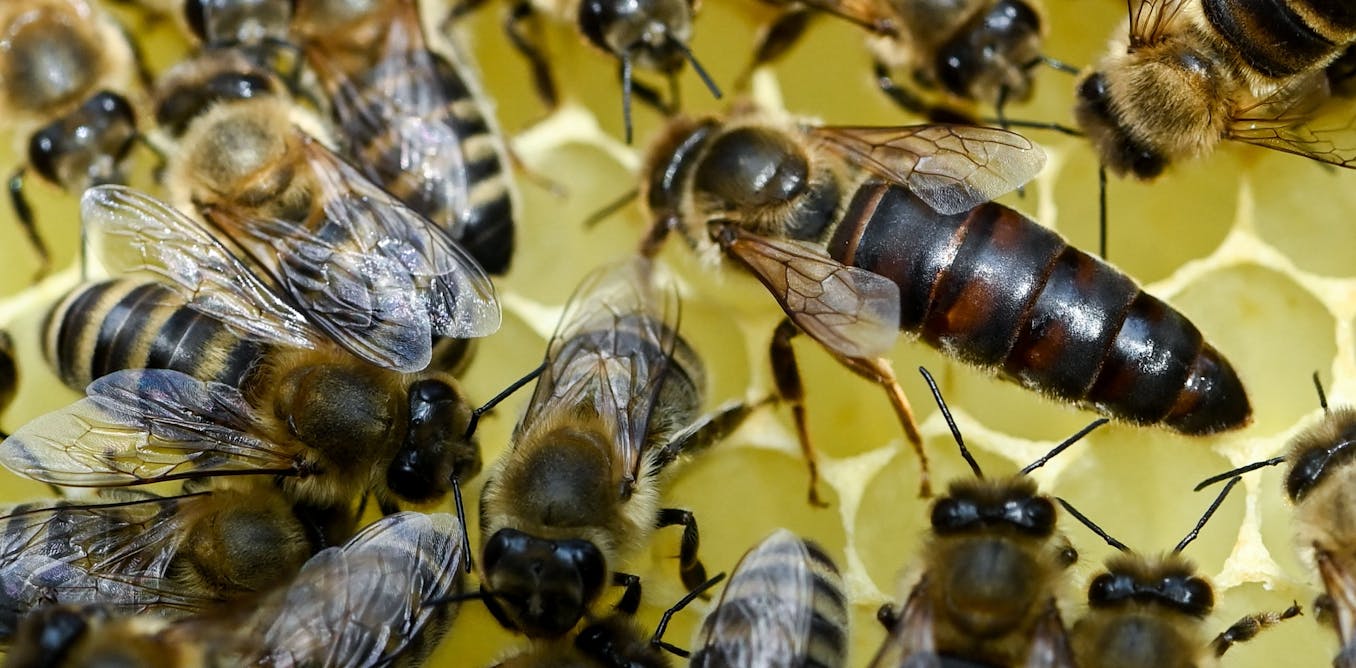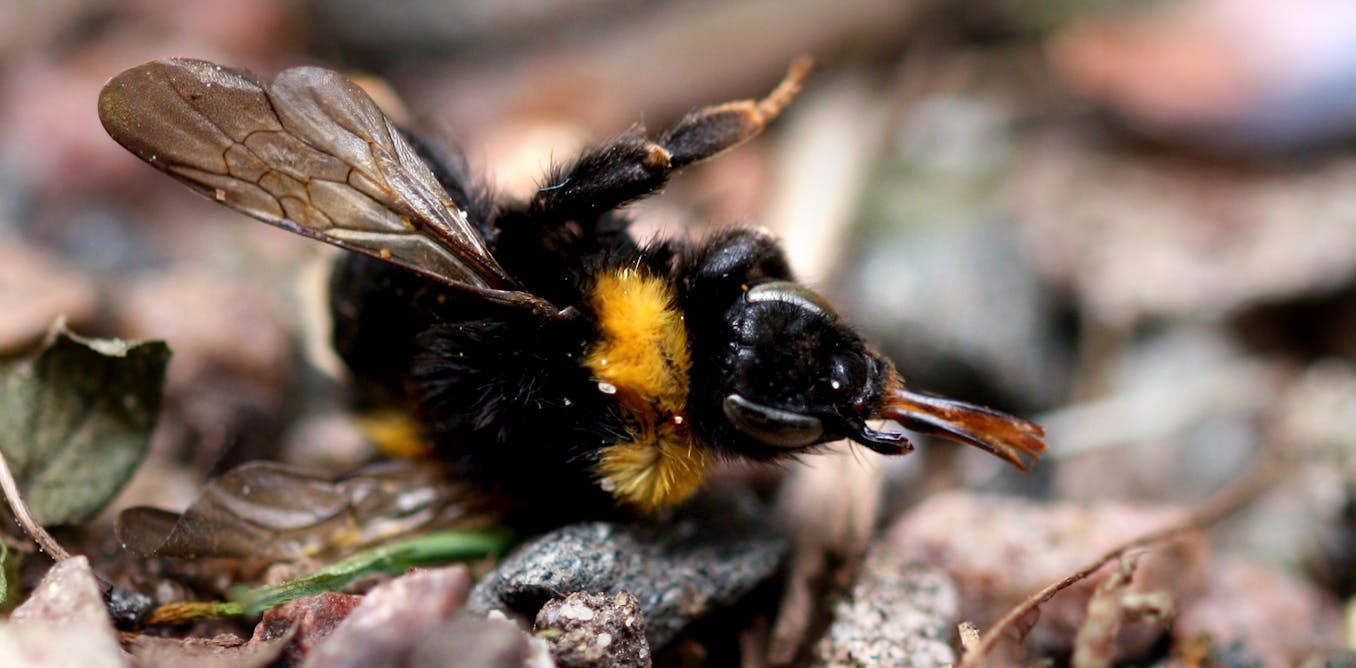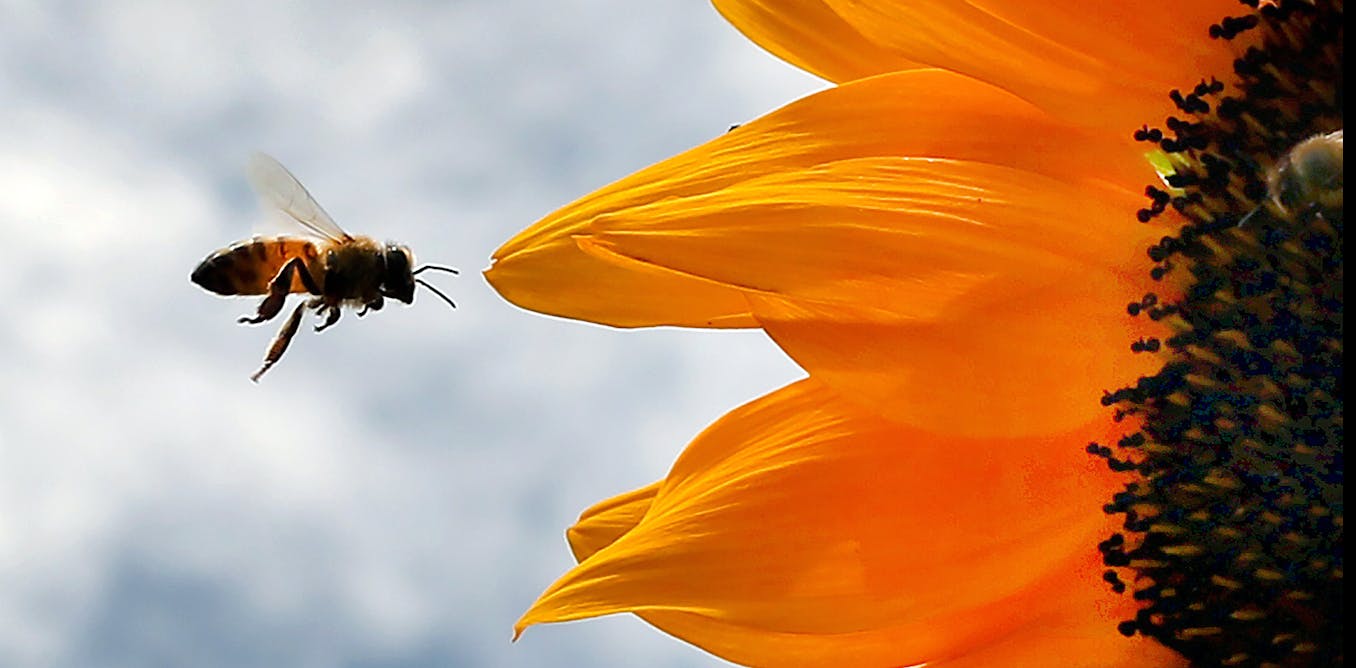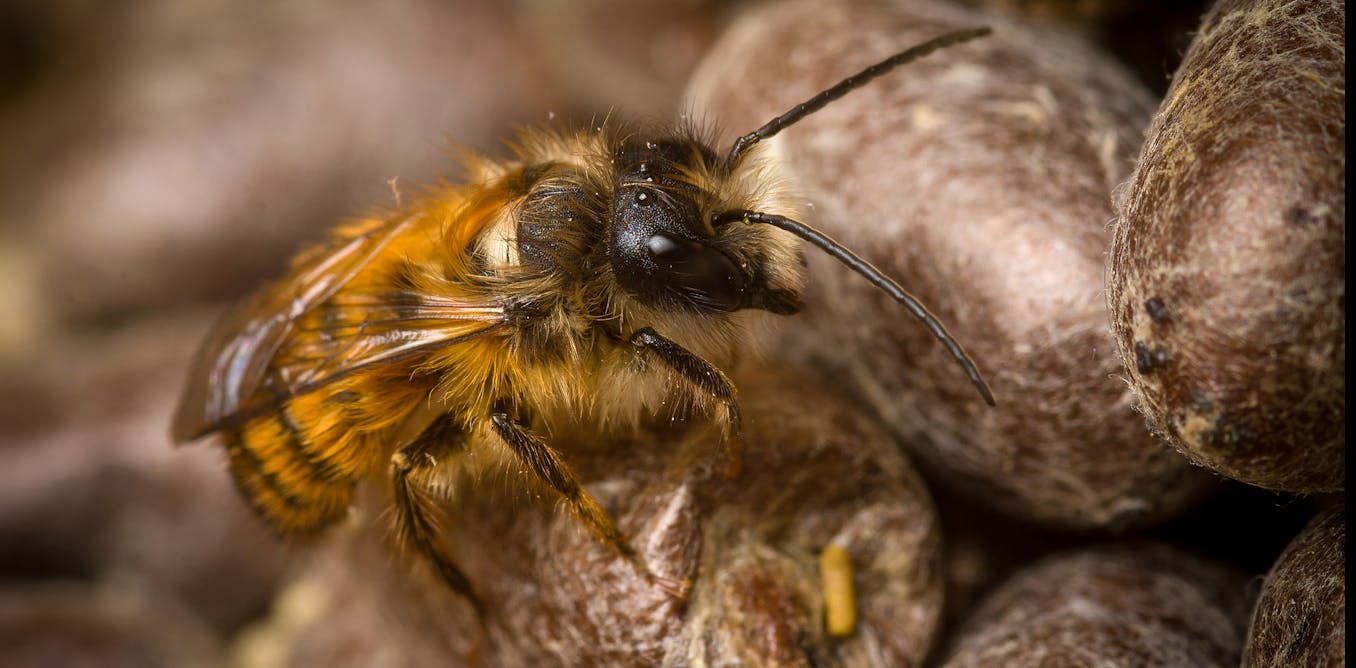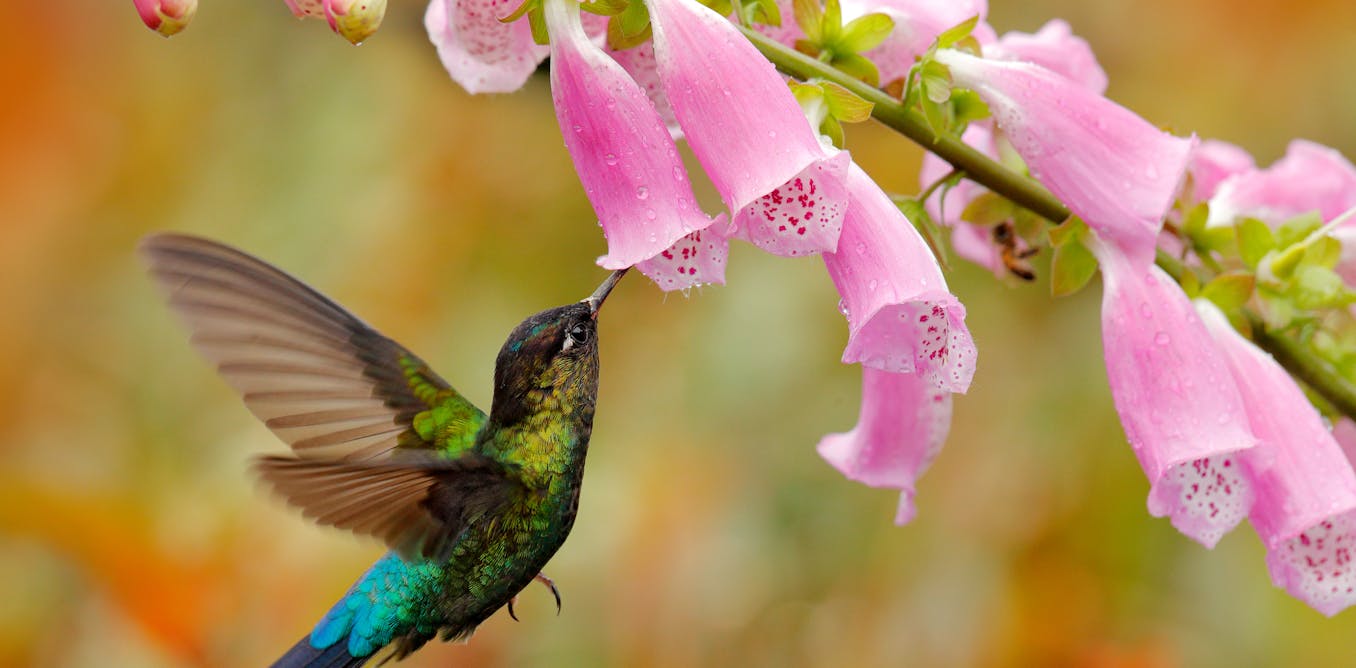Why do bees have queens? 2 biologists explain this insect’s social structure – and why some bees don’t have a queen at all
A queen’s main job in the hive is to lay eggs and pass genes on to offspring. But many bee species do just fine without queens or big colonies.
March 4, 2024 • ~7 min

